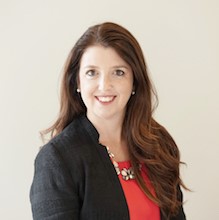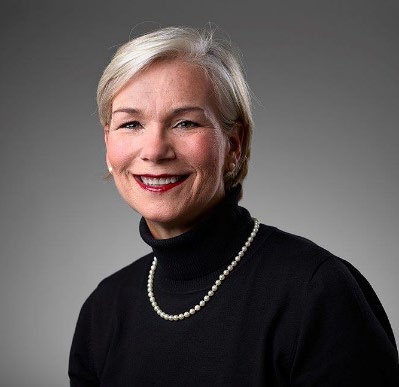What Mutz Philanthropic Leadership Institute Taught Me About Making an Impact

This blog was written by Dr. Jonie Schmalzried of AWS Foundation, who provided an inside look into her Mutz Philanthropic Leadership Institute class.
We were warned the fourth class in our Mutz Institute for Philanthropy Leadership cohort would be a sprint, and that it was. The sprint, however, was well worth all of the information gained. The topic of the day was ‘Making an Impact.’ We focused on how we could approach our work and the philanthropic philosophies we could employ.
The day opened with Dr. Kathi Badertscher, director of graduate programs at the IU Lilly School of Philanthropy, giving an overview of various approaches to philanthropic giving. By taking a quick walk from Andrew Carnegie to Bill Gates, Badertscher shared a perspective of how philanthropy has changed, and yet not changed that much, from the early classical approach to the trust-based approach of today.
After introducing the topic of big systems change, Badertscher was followed by Brian Payne, president and CEO of the Central Indiana Community Foundation (CICF). Payne shared how a West Coast guy with a background in theater management made a major contribution to the Indianapolis area with the Cultural Trail. Payne has helped build CICF into an organization leading the racial equity learning journey in Central Indiana.
Payne’s vision for Indianapolis to be the most racially and overall equitable city in the country begins with two initiatives: 1) the movement of 10K people, where people go on a committed racial equity learning journey to become anti-racist, and 2) asking members of the movement and the community to commit to practicing weekly acts of equity.
“Systems are so powerful that black and brown people are held back even if we are all nice. We must commit to doing better.”
– Brian Payne, CICF
Amanda Lopez, president and founder of Transform Consulting Group, wants to use data to make informed decisions and ultimately achieve better outcomes in our social service agencies. Lopez shared not only the whys and hows of data collection and analysis, she provided the group an overview of the ‘next steps’ to becoming a data informed foundation. She included important ways that foundations can support nonprofits in strengthening data literacy, including becoming a holder of public data (be that resource for the community and partners), acting as a community leader/convener, leveraging technology solutions, and investing to strengthen nonprofits capacity.
“The goal is to turn data into information and information into insight.”
– Amanda Lopez, Transform Consulting Group
Former IPA staffer Melanie Audette, senior vice president of member and partner engagement of the Mission Investors Exchange based in Seattle, rounded out the morning. Audette shared her experiences and knowledge around Impact Investing and how foundations can go “beyond philanthropy,” by highlighting the importance of building relationships where you are helping nonprofits understand every dollar that is in their power. She also emphasized the importance of understanding mission, from the perspective of both the nonprofit and that of the foundation supporting them.
San Francisco-based Shaady Salehi, director of the Trust-Based Philanthropy Project, shared their mission and vision of transforming the way philanthropy operates to be in partnership with communities. Salehi shared her belief that there is a fundamental values-to-practice gap in traditional philanthropy.
“The core of Trust Based Philanthropy is about redistributing power including multi-year unrestricted giving, steamlined applications and reporting, and a commitment to building relationships on transparency, dialogue, and mutual learning.”
– Shaady Salehi, Trust Based Philanthropy
Salehi talked about the importance of building a world where we are connected, healthy, effective, involved in civic engagement, social justice, and leading with trust. She feels that by making nonprofits ‘prove it all the time’ we are keeping them from achieving their goals.
In the afternoon, we were treated to a discussion on innovation and talent (scholarship) experimentation. The panel, which was moderated by IPA CEO Claudia Cummings, included Ami Carter, director of Advantage Shelby County Scholarship; Gretchen Gutman, vice president of public policy at Cook Group Incorporated; and Laura Macknick, executive director of the Don Wood Foundation.
Cummings set the mood of the conversation by declaring, “Philanthropy is the venture capital for the social sector.” Carter shared the particulars of Promise Scholarships, a collaboration between Ivy Tech, local schools, and Advantage, with a goal of providing wrap-around services to increase college attainment as students transition into a postsecondary setting.
Macknick spoke about the Whitko Career Academy, which is building a skilled workforce in Whitley County. The partnership, which includes the Whitley County Community Foundation, Parkview Hospital, and Mission 25, has made a five-year pledge to provide education, certification, and technical programs for both school-aged students and adults.
Gretchen rounded out the panel by sharing the innovative work Cook Group is doing in Bloomington and Indianapolis. In an effort to build a sustainable work force, they are supporting underserved areas by building up both opportunities and resources. They provide full-time pay for part-time work so individuals can get their high school equivalency. They are building both a manufacturing building and needed resources, such as a grocery, in an underserved area of Indianapolis. Their goal is to meet the work force where they are and build not only a job site, but a meaningful life opportunity.
“Philanthropy can be matched with good business opportunities to impact communities. Don’t be afraid to move into a community.”
– Gretchen Gutman, Cook Group Incorporated
The day of learning ended with Jackie Dowd, Lilly Endowment Inc.’s president for evaluation and special initiatives. Dowd shared some critical points to remember regarding evaluations.
“Programs are established to serve people. They are constructed as if they are going to serve people —and they are complicated versus complex. Complicated is building an airplane and you can repeat it. Complex is like a football game. No matter how many times you draw the x and x, the outcome can be different.”
– Jackie Dowd, Lilly Endowment Inc.
Dowd believes that when foundations are talking to grantees about evaluation, it should be about learning. When working with grantees, Dowd advised grantors to thank them for the information and data they have provided, because what we really want is for them to tell us why this data matters, how it informs their work, and how it translates into impact.
Jonie Schmalzried, Ed.D., is the chief program officer for AWS Foundation, an organization whose primary mission is building inclusive NE Indiana communities for those with enduring disabilities. She has spent 37 years in the disability field as a teacher, administrator, and university professor, and worked statewide as a research associate for the Indiana Institute on Disability and Community. Dr. Schmalzried is active with the Indiana Association of Persons Supporting Employment First, Council for Exceptional Children, and the Allen County Transition Planning Council.






